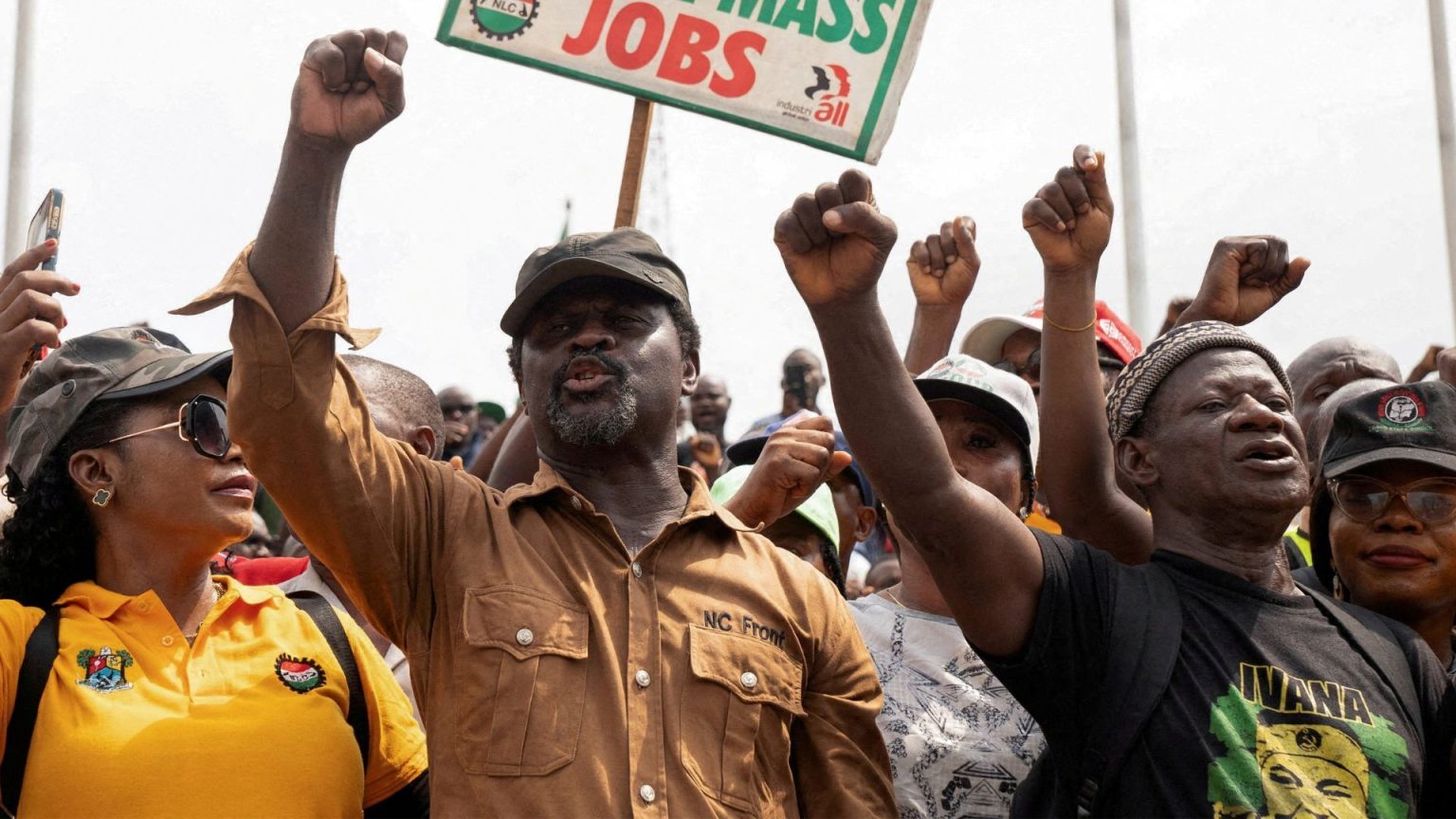A general strike in Nigeria has brought the country to a standstill, with demands for higher wages from union leaders. Nigeria, with a population of over 200 million people, is one of the world’s top oil producers but has faced challenges including corruption, economic mismanagement, and a weak currency. The strike is drawing attention to these issues, with union leaders blaming recent reforms by President Bola Tinubu for exacerbating the situation. The strike has led to the shutdown of the national electric grid and several airports, raising questions about whether it can force the government to change its stance on the minimum wage.
Guests on the show, including Khalil Halilu, the CEO of Nigeria’s National Agency for Science and Engineering Infrastructure, Amaka Anku, Head of the Africa practice at the Eurasia Group, and Hamzat Lawal, an anti-corruption activist and founder of Connected Development, discussed the implications of the strike. The guests highlighted the importance of addressing corruption and economic challenges in Nigeria to improve the country’s overall situation. They also noted the potential impact of the strike on the government’s policies and the need for dialogue between the government and union leaders to find a resolution to the wage issue.
Nigeria’s large population and abundant natural resources have not translated into widespread prosperity due to issues such as corruption and mismanagement. The strike serves as a reminder of the grievances of the Nigerian people and the need for government accountability and reform. The guests emphasized the importance of addressing these underlying issues to ensure sustainable economic growth and development in the country. They also emphasized the role of civil society organizations and activists in advocating for change and holding the government accountable.
The strike has disrupted daily life in Nigeria, with businesses, transportation, and public services affected by the shutdown. The guests discussed the impact of the strike on the economy and the potential consequences for ordinary Nigerians. They stressed the need for a balanced approach that takes into account the concerns of both workers and the government to find a solution that benefits the entire country. The guests also highlighted the importance of transparency and accountability in government decision-making to address the root causes of the wage dispute and prevent future conflicts.
The issue of income inequality and poverty in Nigeria has been exacerbated by the COVID-19 pandemic and the economic challenges facing the country. The guests discussed the need for social protection programs and economic reforms to address these issues and ensure a more equitable distribution of wealth. They also emphasized the importance of investing in education, healthcare, and social services to improve the well-being of all Nigerians. The guests called for a comprehensive approach to addressing the root causes of poverty and inequality in Nigeria to build a more inclusive and prosperous society for all.
In conclusion, the general strike in Nigeria highlights the frustrations of the population with the government’s handling of economic issues and calls for higher wages. The guests on the show emphasized the need for transparency, accountability, and dialogue to address the underlying challenges facing the country. They also stressed the importance of civil society organizations and activists in advocating for change and holding the government accountable. The strike serves as a wake-up call for the government to address corruption, economic mismanagement, and inequality to ensure a more prosperous and stable future for Nigeria.












